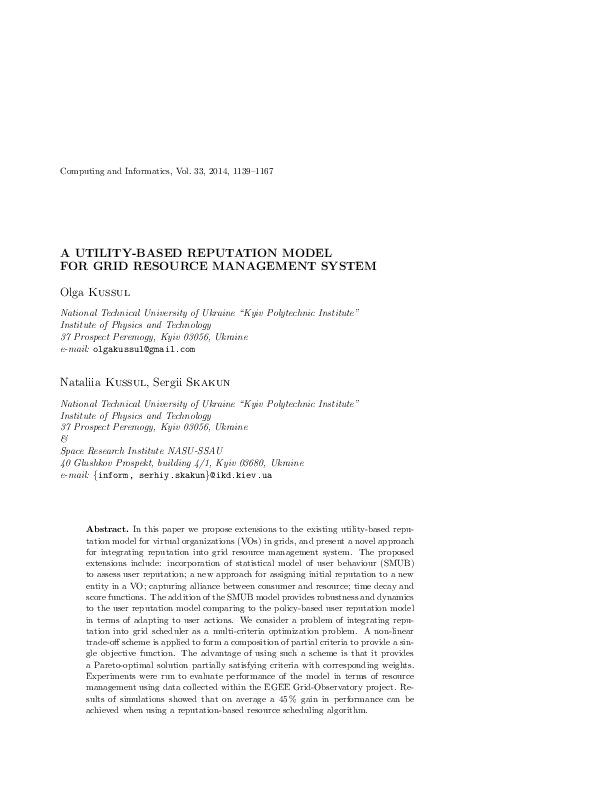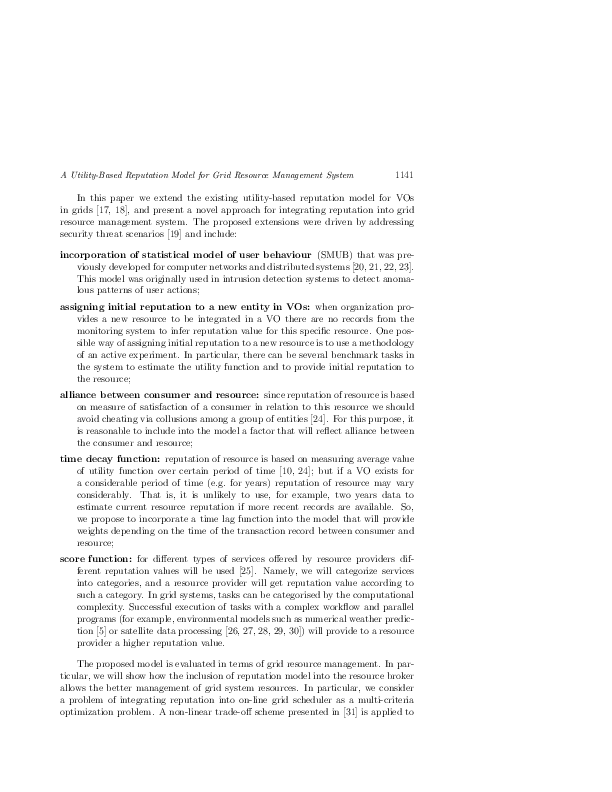A Utility-Based Reputation Model for Grid Resource Management System
keywords: Computational grids, reputation model, scheduling algorithm, resource allocation, utility computing, neural network
In this paper we propose extensions to the existing utility-based reputation model for virtual organizations (VOs) in grids, and present a novel approach for integrating reputation into grid resource management system. The proposed extensions include: incorporation of statistical model of user behaviour (SMUB) to assess user reputation; a new approach for assigning initial reputation to a new entity in a VO; capturing alliance between consumer and resource; time decay and score functions. The addition of the SMUB model provides robustness and dynamics to the user reputation model comparing to the policy-based user reputation model in terms of adapting to user actions. We consider a problem of integrating reputation into grid scheduler as a multi-criteria optimization problem. A non-linear trade-off scheme is applied to form a composition of partial criteria to provide a single objective function. The advantage of using such a scheme is that it provides a Pareto-optimal solution partially satisfying criteria with corresponding weights. Experiments were run to evaluate performance of the model in terms of resource management using data collected within the EGEE Grid-Observatory project. Results of simulations showed that on average a 45 % gain in performance can be achieved when using a reputation-based resource scheduling algorithm.
mathematics subject classification 2000: 91-B16, 68-M20, 68-Q85, 62-M45
reference: Vol. 33, 2014, No. 5, pp. 1139–1167


